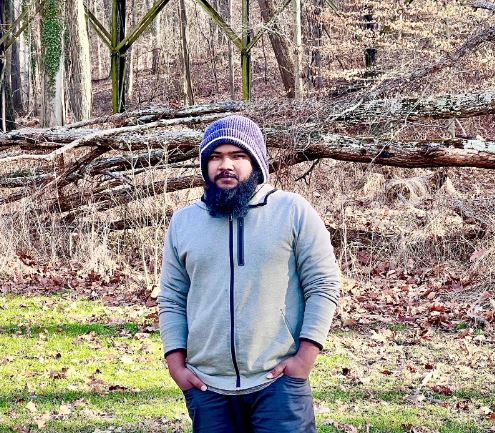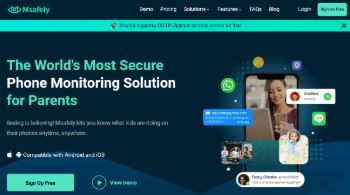Interview with S A Mohaiminul Islam, Software QA Automation Specialist and IT Researcher
Interviewer: Md Abdur Rahim, Senior QA Engineer, US Department of Labor
Interviewee: S A Mohaiminul Islam, Software QA Automation Specialist
Md Abdur Rahim: Welcome, Mohaiminul! It’s a pleasure to have you here today. With your impressive background in Computer Science and Information Technology, coupled with your deep dive into research, I’m sure our conversation will be insightful. Let’s start with your journey—what inspired you to pursue a career in Software QA Automation and IT research?
S A Mohaiminul Islam: Thank you, Md Abdur! It’s great to be here. My journey began during my BSc in Computer Science & Engineering. I was always fascinated by how technology shapes our world, and I felt drawn to understanding not just how to create software but how to ensure it works flawlessly. The leap into IT research was a natural progression for me. I wanted to explore and contribute to how technology, particularly AI, could be harnessed to solve complex real-world problems.
Md Abdur Rahim: That’s inspiring! You’ve published several research papers, which is quite impressive. Among your work, papers such as AI-Driven Predictive Analytics for Enhancing Cybersecurity in a Post-Pandemic World and Real-time Predictive Health Monitoring using AI-driven Wearable Sensors stand out. Can you tell us what sparked your interest in these areas?
S A Mohaiminul Islam: Absolutely! The pandemic reshaped our digital landscape, making cybersecurity a top priority as businesses shifted online. This inspired AI-Driven Predictive Analytics for Enhancing Cybersecurity. I wanted to explore how AI could preemptively identify threats and safeguard businesses. The Predictive Health Monitoring research was fueled by my fascination with health tech and its potential to transform chronic disease management. I saw a future where AI could make healthcare more proactive and personalized, which drove me to dig deeper into that topic.
Md Abdur Rahim: That’s a great perspective, and it’s clear your work goes beyond theory—it’s aimed at practical, transformative applications. Your paper on Artificial Intelligence in Fraud Detection and Financial Risk Mitigation must resonate strongly with the financial sector. What challenges did you face while researching this, and what are some key takeaways?
S A Mohaiminul Islam: That was indeed a challenging yet rewarding experience. One of the main hurdles was gathering relevant case studies and current data that effectively showcased how AI could identify patterns of fraudulent behavior. The financial sector is complex, and integrating AI solutions requires addressing data privacy and compliance. A key takeaway from that paper is that AI’s potential in fraud detection lies in its predictive capabilities and adaptability to new patterns, which can significantly enhance financial security.
Md Abdur Rahim: Fascinating. Your research scope is not only limited to cybersecurity and health tech but also touches on sustainable development with your paper Circular Economy Models in Renewable Energy. How do you see IT contributing to sustainability?
S A Mohaiminul Islam: IT is a cornerstone in driving sustainability. With renewable energy projects, technology enables better resource management, predictive maintenance, and efficient distribution. The research on circular economy models was driven by the need to innovate how technology can be used to repurpose waste and optimize resources. By leveraging data analytics and IoT, businesses can reduce waste and improve energy efficiency, which is a win for both the environment and economic growth.
Md Abdur Rahim: It’s great to see a multi-faceted approach to research. Speaking of transformative tech, your work on The Role of Edge Computing in Driving Real-time Personalized Marketing and Leveraging Blockchain for Transparent and Efficient Supply Chain Management must be groundbreaking. What trends do you foresee in these fields?
S A Mohaiminul Islam: Both edge computing and blockchain are on the brink of mainstream adoption, especially with the growing need for real-time data processing and transparent systems. In personalized marketing, edge computing reduces latency, enabling businesses to deliver content in near real-time based on user behavior. As for blockchain, its immutable ledger is revolutionizing supply chain management by offering transparency and traceability, which builds trust among stakeholders. I see both these technologies becoming integral as businesses seek to offer more personalized experiences and secure operations.
Md Abdur Rahim: Your insights are certainly valuable. One last question: with such an extensive portfolio, how do you balance your role as a Software QA Automation Specialist with your passion for research?
S A Mohaiminul Islam: It’s all about staying organized and nurturing that curiosity. I approach my role in QA with the mindset that continuous learning is essential. My work in research often complements my day-to-day tasks, as both require precision, problem-solving, and adaptability. I allocate dedicated time for research and ensure I’m collaborating with like-minded peers. It’s a balancing act, but the fulfillment I get from contributing to both realms makes it worthwhile.
Md Abdur Rahim: That’s an admirable approach, Mohaiminul. Thank you for sharing your journey and insights with us today. Your work truly embodies innovation and commitment. We wish you continued success!
S A Mohaiminul Islam: Thank you, Md Abdur! It was a pleasure to share my thoughts, and I hope this interview inspires others to merge practical tech skills with research for real-world impact.
For more of S A Mohaiminul Islam’s published work, visit his Academia profile or his Google Scholar page. You can also explore his research contributions through his ResearchGate profile and stay updated via his personal website.






